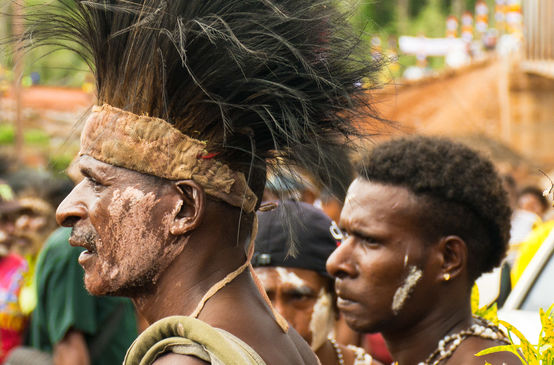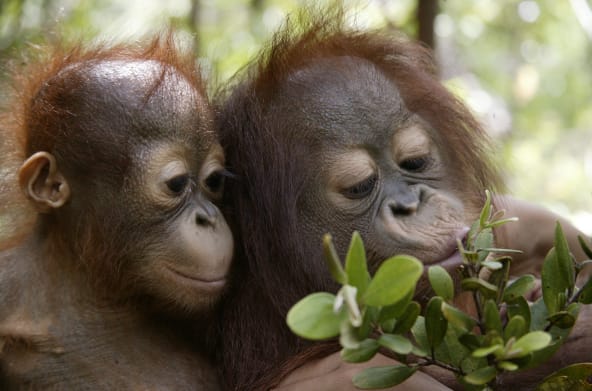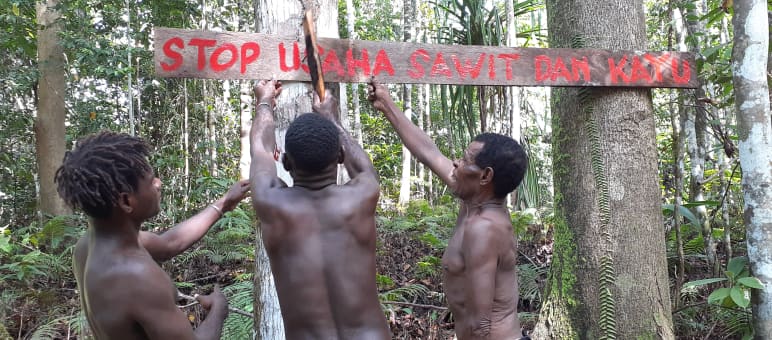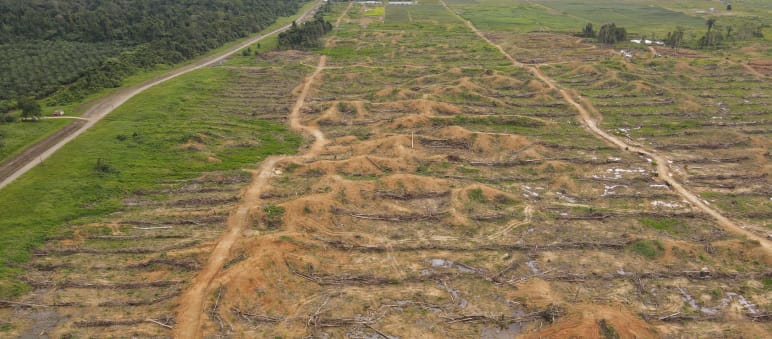Papua: Deforestation for palm oil and paper industries on the rise
The analysis of current satellite data shows that despite official measures and local resistance, deforestation in Papua’s rainforests has not slowed. Palm oil and paper companies are mostly behind the destruction.
Despite the measures taken by the authorities against irregular companies and the staunch resistance of local people in Papua, more than 1,150 hectares of rainforest in Sorong, Jayapura and Merauke were cleared in the first half of 2022, mainly for the palm oil and paper industries. The destruction was documented by satellite imagery.
Papua refers here to the Indonesian provinces in the western part of New Guinea, the second largest island in the world. The eastern part, Papua New Guinea, is an independent country. Papua is home to an estimated 3.5 million people, of whom more than two million are immigrants attracted by its abundant resources.
With their traditional way of life, indigenous Papuans have protected the region’s forests for thousands of years, Papua thus boasts the last truly extensive, biodiverse rainforests of the Asia-Pacific region.
However, global demand for timber, palm oil, gold and other resources poses an acute threat to Papua’s rainforests, and thus to the indigenous people. Government programs to “develop” Papua, in an unholy alliance with corporate greed and military force, have made the provinces a hotspot of environmental degradation and human rights violations.
According to our partner organization Pusaka, palm oil and paper companies are primarily responsible for the current clear-cutting. In Sorong, for example a company unlawfully cleared a forest belonging to the Mugu clan without consulting the local community. “We would never have permitted it. The company must be punished,” says Efron Mugu, a member of the clan.
A similar case occurred in the village of Masmili: In December 2021, the company Inti Kebun Sejahtera began clearing the forest. This prompted the affected indigenous people to set up camp in the cleared areas to obstruct the company, Pusaka reports. The company then promised to take responsibility for the lost forest, yet it continues to plant oil palms.
While most communities are left in the dark about such schemes, the Klafiyu clan was able to obtain information about plans for new plantations in their forest. From this they could see that the government collects the equivalent of 16 euros for one hectare of rainforest.
The involved companies are thus making a killing on the timber alone: For example, an indigenous Papuan can get 11 euros for one cubic meter of merbau. That same timber is worth 60-70 euros on the local market, almost 500 euros after processing in China, and more than 2,000 euros on the European market. Much less merbau is exported from Papua according to official figures than is traded on world markets.
Working closely with indigenous communities, other organizations and local authorities, our partner Pusaka prompted the investigation of numerous palm oil, paper and mining companies. The campaign was a success: In January 2022, the Ministry of Environment and Forestry withdrew 192 permits, 51 of which were in Papua.
Previously, even Indonesian President Joko Widodo had come out in favor of revoking dubious permits in order to – in his words – “correct inequality, injustice and damage to nature.” Nevertheless, the companies continue to operate. The profit motive is strong, and sustainability and indigenous rights mean nothing to them.
This page is available in the following languages:

Papua: “Surrendering our land would be suicide”
Tell the Indonesian government to scrap the industrial agriculture projects in Merauke. Protect the forest and the rights of Papua’s indigenous people.

The rainforest
A green sea of ferns, mosses, vines and ancient trees. Iridescent butterflies and colorful birds. Flowers in every hue of the rainbow. The “green lung” is a natural wonder of the world. Find out more about the world’s most diverse, fascinating and threatened ecosystem.

